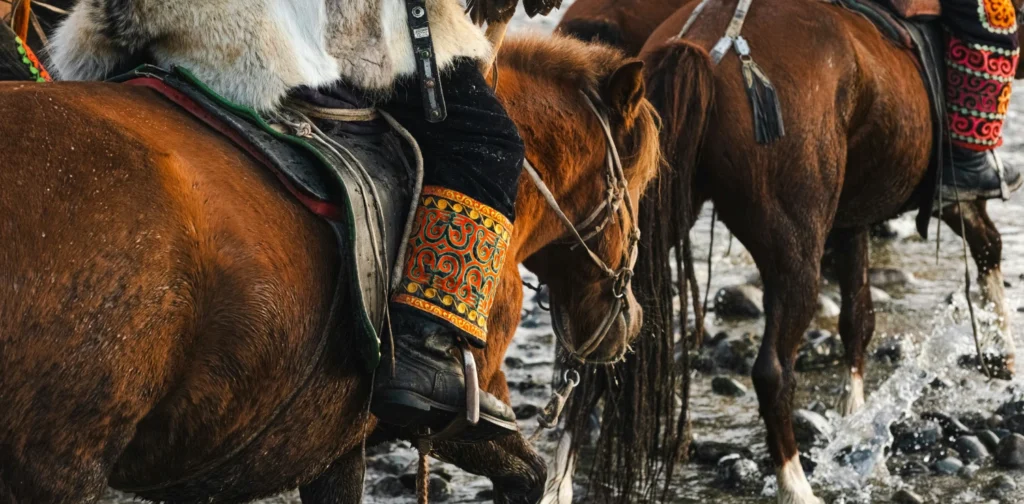How the Ongi River Movement in Mongolia Protects People and the Planet

Photo: Fadhil Abhimantra on Unsplash.
Water is a source of life in which all creatures on our planet depend on to survive and thrive. Rivers are an especially vital water source in Mongolia, a semi-arid country with low-precipitation of rain. However, extreme weather events and mining activities are threatening them. In light of this, the grassroots Ongi River Movement arose.
Threats on Water, Threats on Livelihood
Mongolia is a landlocked country with dry weather and relatively low precipitation of rain. Unfortunately, climate change and land desertification have been further threatening the country’s water sources. The UNDP reported that land desertification is affecting more than 77% of Mongolia’s land. This development is concerning, considering more than 82% of total water usage is sourced from groundwater, supplying both economic activities and consumption for Mongolians.
These challenges are particularly tough in rural areas where herder households reside. A third of Mongolia’s households are herders; they depend on water sources to raise livestock and grow agricultural produce. Moreover, these rural households are especially vulnerable to climate risk. Extreme weather events such droughts and dzud — a severe winter storm — are becoming increasingly severe due to climate change. Such an event may lead to mass livestock death, hurting their food source and income.
Furthermore, water sources like rivers are threatened by mining activities along the river headwater. For example, arsenic and heavy metals, like nickel and aluminum, are found to be contaminating river waters, endangering locals and surrounding biodiversity.
The Ongi River Movement
These threats have prompted an initiative within the herders community in Mongolia. Among them is the Ongi River Movement.
The Ongi River Movement is a community-based advocacy group that acts against gold mining activities along the Ongi River basin. Emerged in 2001, the movement began as the local herders noticed the clear river they had known had turned muddy and dry. So, the villagers banded together to set up meetings, public campaigns, and protests to demand for accountability and the end of mining activities. The movement then spread to wider civilian groups like lawyers, scientists, and others. As a result, five years later, 35 out of 36 mining activities near the river basin had stopped operating.
Shortly after its establishment, the Ongi River Movement created eight local boards along three provinces near the Ongi River Basin and recruited 4,000 supportive members. Their activities include increasing local awareness through seminars, townhall meetings, and marches. They seek to spread the urgency of maintaining natural resources and campaigning for environmental protections.
Their advocacy became nation-wide when the activists started to demand a law that prohibited exploration and operation of mining in rivers, protected zones, and forests. Due to their continuous campaign and demand, the Mongolian Parliament finally passed the law in 2009. The Ongi River Movement has proven that when people are united, safeguarding nature is possible.
Nature and Livelihood is Interconnected
Our planet’s resources have been what communities depend on for centuries; hence, the fate of nature and livelihood is intertwined. Mongolia’s instance is one example: when rivers become polluted or dry, herders lose their livestock and families lose their water sources. Therefore, protecting nature or people’s livelihoods shouldn’t be a dilemma—they go hand in hand and are an interconnected priority that moves in the same direction.
Although there are laws that protect nature in Mongolia and beyond, stronger monitoring and enforcement is necessary to leave no gap for violations that may harm local communities, ecosystems, and biodiversity. For one, the government must enhance transparency in mining permit processes to prevent corruption.
Furthermore, as shown by the Ongi River Movement, communities can take part in actively supervising, advocating, and holding institutions accountable and true to their promises. After all, nature protection affects people and the planet alike, now and for the future of all.
Editor: Nazalea Kusuma

Co-create positive impact for people and the planet.
Amidst today’s increasingly complex global challenges, equipping yourself, team, and communities with interdisciplinary and cross-sectoral insights on sustainability-related issues and sustainable development is no longer optional — it is a strategic necessity to stay ahead and stay relevant.


 Women in Waste Management: Asia’s Circularity Runs on Women. Its Policies Still Don’t
Women in Waste Management: Asia’s Circularity Runs on Women. Its Policies Still Don’t  Embracing the Business Value of Sustainability
Embracing the Business Value of Sustainability  American Farmers Call for Government Support Amidst PFAS Contamination
American Farmers Call for Government Support Amidst PFAS Contamination  Asia Pacific’s SDG Progress Faces Major Setbacks
Asia Pacific’s SDG Progress Faces Major Setbacks  Exploring the Bidirectional Relationship Between Olympic Games and the Environment
Exploring the Bidirectional Relationship Between Olympic Games and the Environment  The Hidden Threat of Tire Pollution to Salmon Populations
The Hidden Threat of Tire Pollution to Salmon Populations